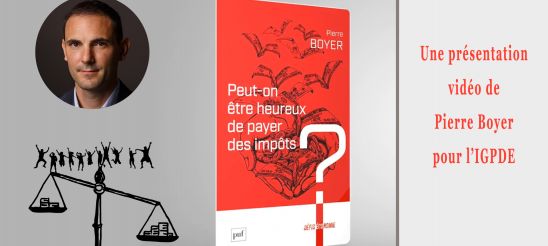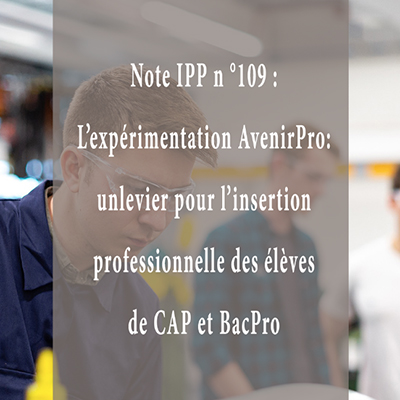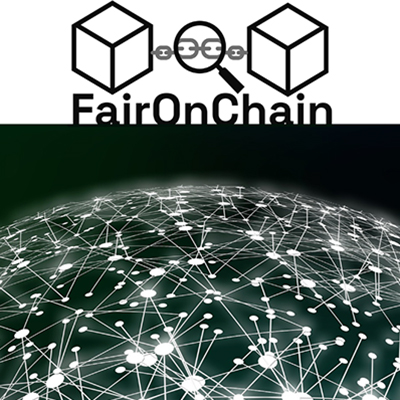Une présentation vidéo de Pierre Boyer pour l’IGPDE.
09/10/2024
CEPR_DP19556 Foreign Exchange Interventions and Intermediary Constraints – By Alex Ferreira, Rory Mullen, Giovanni Ricco, Ganesh Viswanath-Natraj and Zijie Wang
CEPR_DP19556 Foreign Exchange Interventions and Intermediary Constraints
By Alex Ferreira, Rory Mullen, Giovanni Ricco, Ganesh Viswanath-Natraj and Zijie Wang
5 Oct 2024
Nicola Viegi, Visiting Professor from Pretoria University at CREST

We are pleased to welcome Professor Nicol Viegi, South African Reserve Bank Chair in Monetary Policy Studies at the University of Pretoria, South Africa, as a visiting professor at CREST with Prof. Giovanni Ricco.
Professor Viegi, along with Giovanni Ricco, has been collaborating for several years on an ongoing project focused on the analysis of monetary policy in emerging markets. Their research leverages state-of-the-art technologies that are traditionally used to study monetary policy in developed economies, particularly in the United States. The first significant outcome of this collaboration, co-authored with Ekaterina Pirozhkova (EM Normandie and SARB), is the paper “Trouble Every Day: Monetary Policy in an Open Emerging Economy” (CEPR Discussion Paper DP19094). In this paper, event study and high-frequency identification techniques are applied to South Africa to explore two primary aspects: first, how monetary policy communication affects the yield curve and other assets, and second, how these effects are transmitted throughout the economy. One of the key goals of Professor Viegi’s visit to CREST is to refine this analysis and co-author a VOXEU article to further explore the broader policy implications of this research.
In addition to this, Professor Viegi is embarking on a new research project that will investigate the macroeconomic effects of central bank balance sheets and their operating frameworks. There is a burgeoning literature, spearheaded by scholars like Ricardo Reis, examining the “new-style central banking,” which entails changes in the size, composition, and remuneration rules of central bank balance sheets, initially developed in response to financial crises. This new operating framework is increasingly being promoted by the IMF as a model for separating financial stability interventions from interest rate policies in emerging markets. South Africa has adopted a similar framework, and Professor Viegi’s research will aim to delve into its effectiveness, macroeconomic impacts, and critical aspects in the context of an emerging market economy. His visit to CREST will allow him to advance this project, developing a theoretical framework to support the analysis.
Finally, Professor Viegi plans to take advantage of his time at CREST to author a policy paper titled “The Past, Present, and Future of Monetary Policy in South Africa.” This reflective piece will summarize the lessons learned from over two decades of inflation targeting in South Africa, while also considering the role monetary policy can play in overcoming the current economic stagnation and supporting the country’s growth and development. The paper will be presented at a national policy conference early next year, where academic and policy experts will gather to discuss the future trajectory of the South African economy.
Nicola Viegi, Visiting Professor from Pretoria University at CREST

We are pleased to welcome Professor Nicol Viegi, South African Reserve Bank Chair in Monetary Policy Studies at the University of Pretoria, South Africa, as a visiting professor at CREST with Prof. Giovanni Ricco.
Professor Viegi, along with Giovanni Ricco, has been collaborating for several years on an ongoing project focused on the analysis of monetary policy in emerging markets. Their research leverages state-of-the-art technologies that are traditionally used to study monetary policy in developed economies, particularly in the United States. The first significant outcome of this collaboration, co-authored with Ekaterina Pirozhkova (EM Normandie and SARB), is the paper “Trouble Every Day: Monetary Policy in an Open Emerging Economy” (CEPR Discussion Paper DP19094). In this paper, event study and high-frequency identification techniques are applied to South Africa to explore two primary aspects: first, how monetary policy communication affects the yield curve and other assets, and second, how these effects are transmitted throughout the economy. One of the key goals of Professor Viegi’s visit to CREST is to refine this analysis and co-author a VOXEU article to further explore the broader policy implications of this research.
In addition to this, Professor Viegi is embarking on a new research project that will investigate the macroeconomic effects of central bank balance sheets and their operating frameworks. There is a burgeoning literature, spearheaded by scholars like Ricardo Reis, examining the “new-style central banking,” which entails changes in the size, composition, and remuneration rules of central bank balance sheets, initially developed in response to financial crises. This new operating framework is increasingly being promoted by the IMF as a model for separating financial stability interventions from interest rate policies in emerging markets. South Africa has adopted a similar framework, and Professor Viegi’s research will aim to delve into its effectiveness, macroeconomic impacts, and critical aspects in the context of an emerging market economy. His visit to CREST will allow him to advance this project, developing a theoretical framework to support the analysis.
Finally, Professor Viegi plans to take advantage of his time at CREST to author a policy paper titled “The Past, Present, and Future of Monetary Policy in South Africa.” This reflective piece will summarize the lessons learned from over two decades of inflation targeting in South Africa, while also considering the role monetary policy can play in overcoming the current economic stagnation and supporting the country’s growth and development. The paper will be presented at a national policy conference early next year, where academic and policy experts will gather to discuss the future trajectory of the South African economy.
Nouvelle Note IPP – L’expérimentation AvenirPro : un levier pour l’insertion professionnelle des élèves de CAP et BacPro
L’Institut des politiques publiques (IPP) publie une nouvelle note qui présente les premiers résultats de l’expérimentation AvenirPro, un travail de Pierre Cahuc, Jérémy Hervelin, Arnaud Largy et Arne Uhlendorff. Il s’agit d’un dispositif visant à améliorer l’insertion professionnelle des élèves de lycées professionnels. Le programme, déployé en 2021-2022, a accompagné plus de 4 000 élèves à travers la France, avec un impact positif sur leur taux d’emploi, notamment pour les jeunes rencontrant le plus de difficultés.
Les résultats montrent une augmentation de 45 % du taux d’emploi des participants, ainsi qu’une hausse significative du nombre de jours travaillés. Ce programme, coordonné par France Travail, propose un accompagnement collectif en classe et un suivi personnalisé après la fin de l’année scolaire.
📈 Chiffres clés :
- Le taux d’emploi des élèves a augmenté de 16 % à 23 %.
- Le nombre de jours travaillés a triplé pour les élèves les plus en difficulté.
- Une baisse de 22 % de l’inscription en études supérieures est observée, nécessitant des analyses complémentaires.
Pour en savoir plus, consultez la note complète : https://www.ipp.eu/publication/lexperimentation-avenirpro-un-levier-pour-linsertion-professionnelle-des-eleves-de-cap-et-bacpro/
Nouvelle Note IPP – L’expérimentation AvenirPro : un levier pour l’insertion professionnelle des élèves de CAP et BacPro
L’Institut des politiques publiques (IPP) publie une nouvelle note qui présente les premiers résultats de l’expérimentation AvenirPro, un travail de Pierre Cahuc, Jérémy Hervelin, Arnaud Largy et Arne Uhlendorff. Il s’agit d’un dispositif visant à améliorer l’insertion professionnelle des élèves de lycées professionnels. Le programme, déployé en 2021-2022, a accompagné plus de 4 000 élèves à travers la France, avec un impact positif sur leur taux d’emploi, notamment pour les jeunes rencontrant le plus de difficultés.
Les résultats montrent une augmentation de 45 % du taux d’emploi des participants, ainsi qu’une hausse significative du nombre de jours travaillés. Ce programme, coordonné par France Travail, propose un accompagnement collectif en classe et un suivi personnalisé après la fin de l’année scolaire.
📈 Chiffres clés :
- Le taux d’emploi des élèves a augmenté de 16 % à 23 %.
- Le nombre de jours travaillés a triplé pour les élèves les plus en difficulté.
- Une baisse de 22 % de l’inscription en études supérieures est observée, nécessitant des analyses complémentaires.
Pour en savoir plus, consultez la note complète : https://www.ipp.eu/publication/lexperimentation-avenirpro-un-levier-pour-linsertion-professionnelle-des-eleves-de-cap-et-bacpro/
VoxEU Talk – An interview with Benoît Schmutz-Bloch “How protests are born, and how they die”
27 Septembre 2024
VoxEU Talk – An interview with Benoît Schmutz-Bloch “How protests are born, and how they die”
27 Septembre 2024
Latency Tradeoffs in Blockchain Capacity Management
CREST Working Papers Series No. 2024-10
by Michele Fabi
FairOnChain Consortium Meets at École polytechnique
On September 26, 2024, Blockchain@X Research Center, part of CREST, hosted the second in-person FairOnChain consortium meeting at the Alan Turing Building at INRIA on the École polytechnique campus.
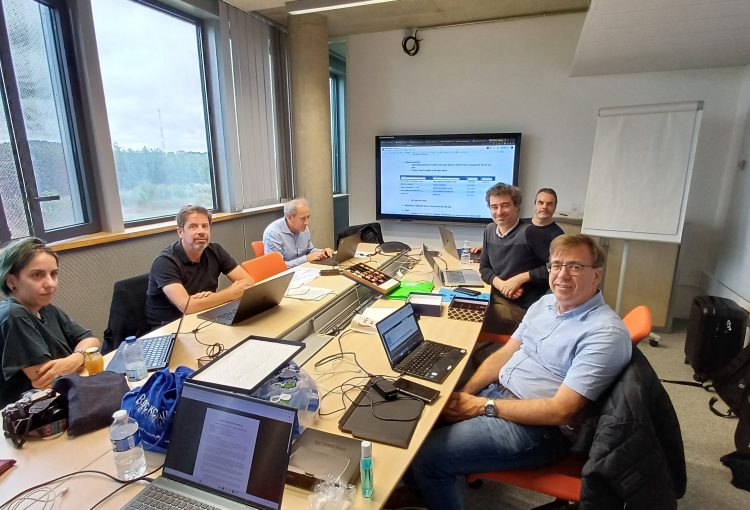
The meeting brought together the principal investigators (PIs) and researchers involved in the FairOnChain project, an initiative focused on developing a fair and modular blockchain data infrastructure for open science and society. Participants included:
- Prof. Julien Prat, CREST, École polytechnique
- Prof. Marco Mattavelli, École Polytechnique Fédérale de Lausanne
- Prof. Arnaud Gaudinat, Haute École de Gestion de Genève
- Prof. William Knottenbelt, Imperial College London
- Christophe Lebrun, Haute École de Gestion de Genève
- Madalina Sas, Imperial College London
- Natkamon Tovanich, CREST, École polytechnique
During the meeting, the team updated the progress of ongoing work and detailed the planning for the next phase of the project. This included developments of a unified blockchain data structure and publicly accessible blockchain datasets aimed at enhancing data access, transparency, and reproducibility in blockchain research.
The team also discussed the technical work required to achieve the project goals and plans for the internal report submission to CHIST-ERA. Furthermore, they explored the possibility of upcoming publications resulting from the research within the consortium.
The meeting strengthened collaboration within this international team. Future meetings are planned for Lausanne, Switzerland, around January 2025, followed by a gathering in London, United Kingdom, in June 2025.
About FairOnChain Project
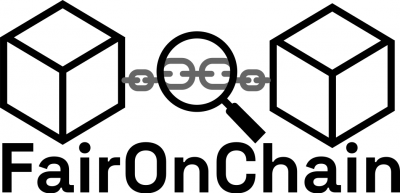
The FairOnChain Project is a pioneering European research collaboration funded by the CHIST-ERA call for Open and Reusable Research Data and Software (ORD). Running from 2023 to 2025, this two-year initiative aims to overcome the technical barriers to accessing and analyzing blockchain data, promoting enhanced transparency and reproducibility in blockchain research.
As part of this project, the FairOnChain team will contribute to the scientific community with:
- Publicly Accessible and Expandable Datasets: These will include structured, daily updated blockchain transaction data. Researchers can access raw blockchain transactions alongside enriched, community-maintained datasets in a uniform, open format, ensuring greater availability and reuse of this complex data.
- Open-Source Software Framework and Standardized APIs: This project aims to deliver a unified framework for researchers to query, annotate, and reference blockchain data effectively. Additionally, it will support the development of well-described, reusable workflows and pipelines to facilitate the exchange and replication of scientific results in line with the FAIR principles (fundability, accessibility, interoperability, and reusability) of open science.
By developing modular and scalable data infrastructure, FairOnChain aims to facilitate easier, open access to blockchain datasets, enabling researchers and society to benefit from trustworthy and reusable data for scientific discovery.
The consortium behind FairOnChain includes leading research institutions from France (École polytechnique, Institut Polytechnique de Paris), Switzerland (Haute École de Gestion de Genève, HES-SO and École Polytechnique Fédérale de Lausanne) and the United Kingdom (Imperial College London).
Each institution has received grants from its respective national research agencies to support this collaborative research project.

